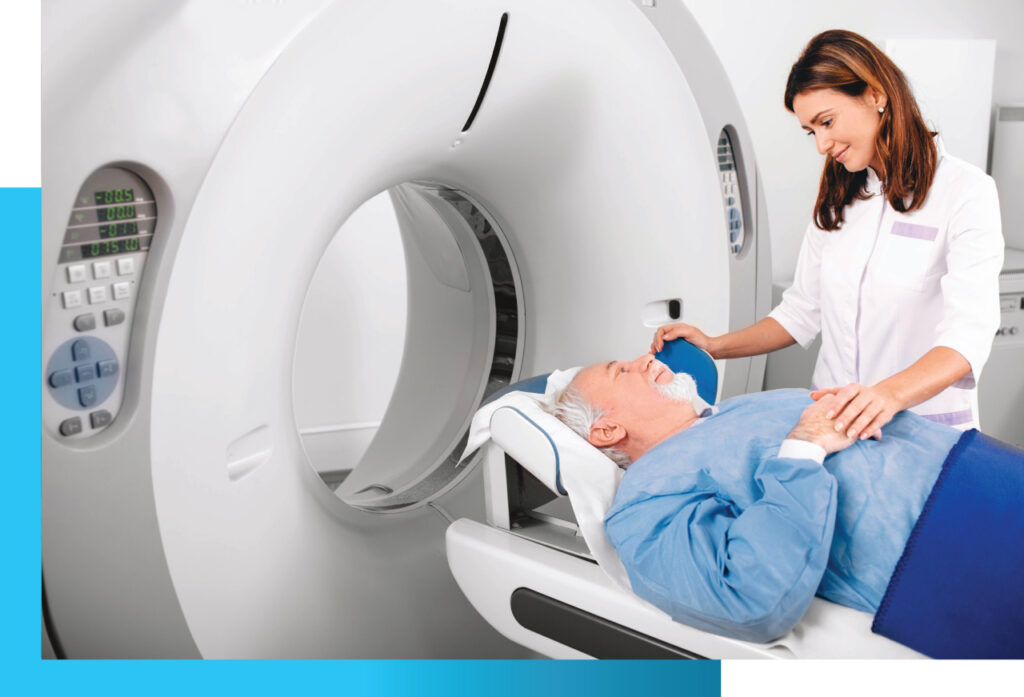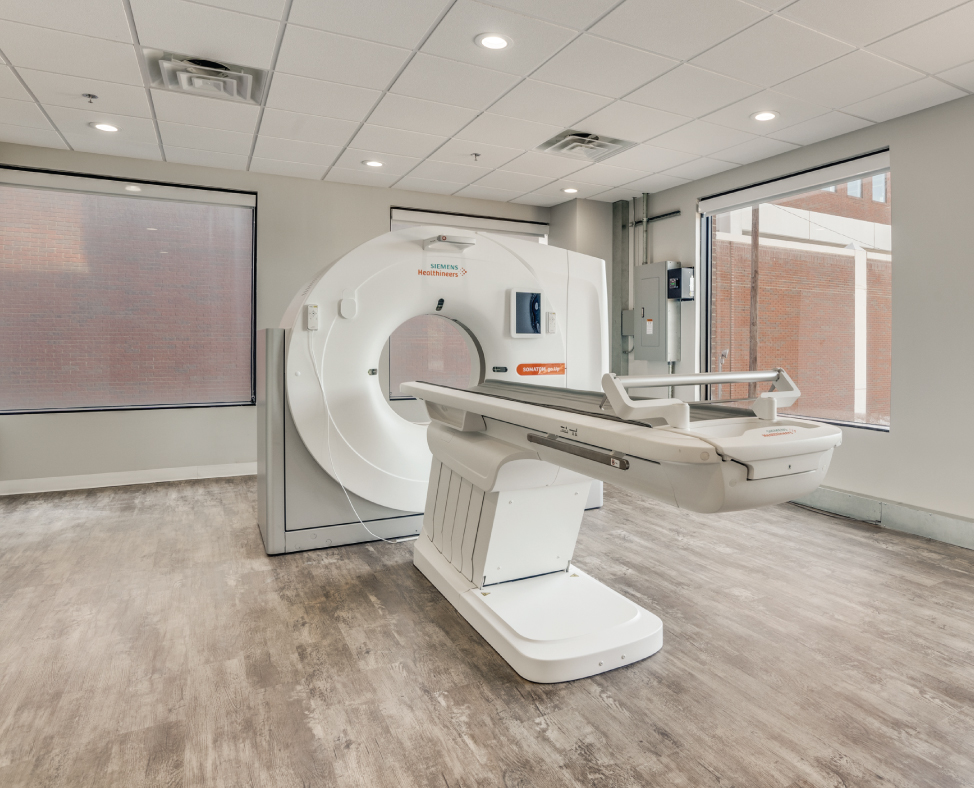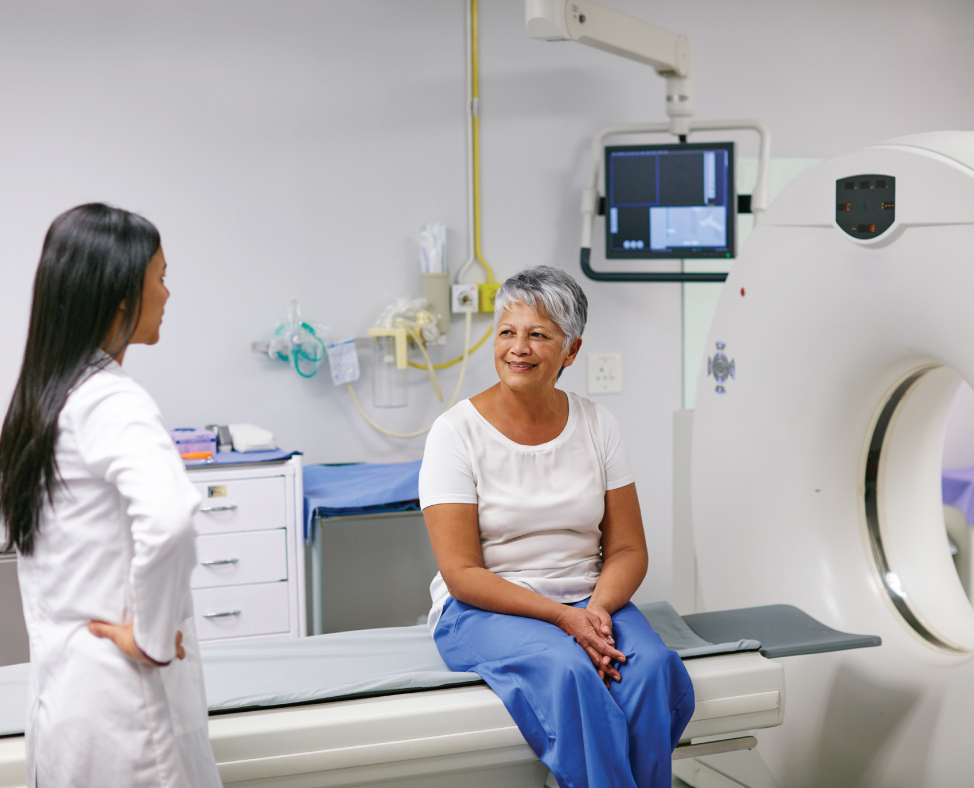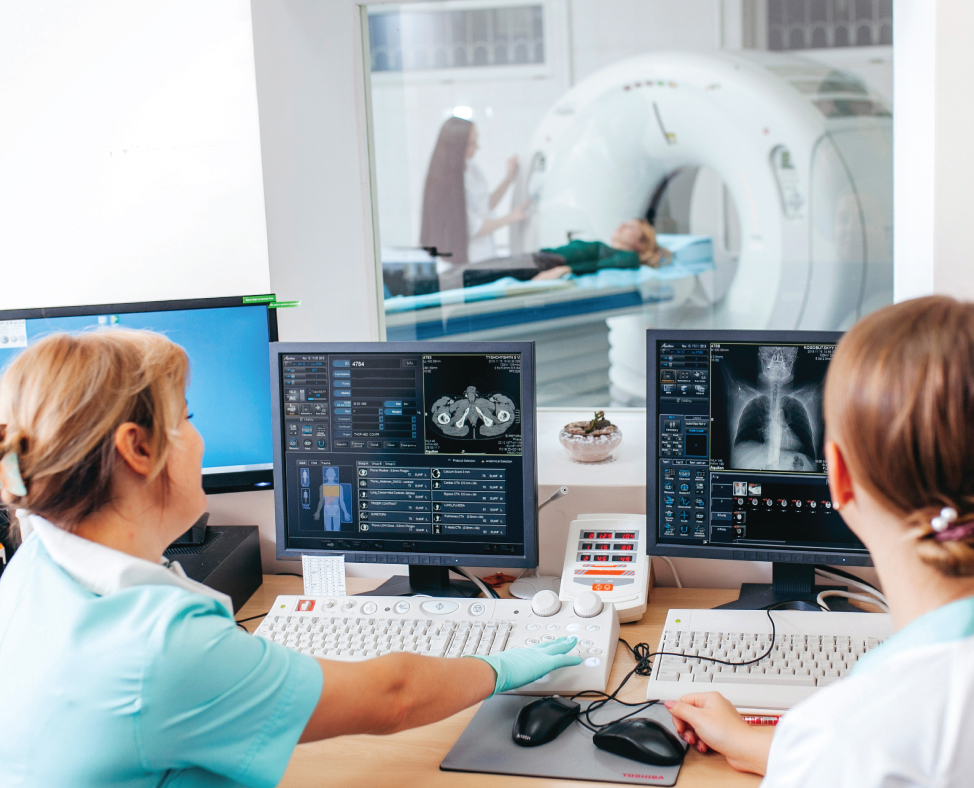How does a chest ultrasound detect heart problems?
Your healthcare provider might recommend a chest ultrasound, alongside other diagnostic imaging tests, when they want a closer look at the blood flow…

At Gateway Diagnostic Imaging, we strive to provide the highest quality diagnostic CT scans in the Dallas-Fort Worth area at a price our patients can afford. Learn more about receiving a CT scan and what you can expect from Gateway Diagnostic Imaging.

A computer tomography (CT) scan takes multiple X-Ray images of your body at different angles to look at your soft tissues, blood vessels, organs, and bones. Because a CT scan combines multiple X-Ray images, these scans are more detailed than traditional X-Ray scans.
Like an X-Ray, CT scans are non-invasive and painless. You may need a CT scan for many reasons, including to identify internal bleeding, detect conditions like cancer, or find blood clots, tumors, or infections.

When you arrive for your CT scan, you may be asked to change into a cotton gown and remove any metal objects from your body, such as jewelry. Some scans are done with a special dye called a contrast material, which makes it easier for your doctor to see different areas of your body. If your scan requires a contrast material, you’ll get this prior to the scan by mouth or injection.
To begin the scan, you’ll lie on the machine’s table, which will then slowly move through a donut-shaped tube. You’ll need to stay as still as possible during the scan to avoid blurring the images. The technologist will be able to speak to you throughout the scan with an intercom in the machine. Unlike an MRI exam, a CT scan is very quiet.
On average, CT scans take between 10 and 30 minutes to complete.

To make your diagnostic CT scan as easy as possible, Gateway Diagnostic Imaging has 12 convenient locations that offer extended weekend, early morning, and evening hours.
Our CT scans are also more affordable than many other options. We work with all major insurance companies, accept CareCredit®, and have financial assistance programs available to ensure you can access the scans you need.
You will need a referral from a healthcare provider to schedule an CT scan. Healthcare providers, such as your primary care doctor or a specialist, typically order imaging tests like CTs based on your symptoms, medical history, or the need for further evaluation. They assess whether an CT is necessary for your specific situation. In addition, your healthcare providers referral and clinical notes are typically used by your insurance to verify and approve coverage for the CT scan.
The cost of an CT scan can be very different based on where you are, like which city, state or country you reside in. It also depends on where you go to get the CT scan, like a hospital or an independent outpatient imaging center. As an outpatient center, Gateway Diagnostic Imaging provides an affordable option for patients.
The type of CT scan you need, such as with contrast, and whether you have health insurance will also affect the cost. If you have insurance, they might cover some of the cost, but you might still need to pay some money. You can also talk to your insurance company to understand what they will cover.
Learn more about the costs associated with an CT scan in Dallas-Fort Worth.
A CT scan is used to identify a variety of health issues in the body. Some of these issue are:
How long your CT scan will take depends on the area of the body to be scanned, the number of body parts to be scanned, and if your scan requires contrast or not. Typically, a CT scan will take between 10-30 minutes to complete.
Gateway offers appointment options as soon as the same day or next day for your CT scan at our 12 locations throughout Dallas-Fort Worth metro area and in Abilene.
Preparing for a CT scan is fairly simple.
Yes, your doctor has access to your scans through the GDI portal, Synapse
A CT with contrast enhances the subtle difference in tones that are ordinarily not visible on a scan. In addition to highlighting vascular structures, it can also be an indicator of which other areas of the body are impacted, which provides valuable insight for treatment.
Radiation doses from modern CT scanners are typically kept as low as reasonably achievable while still obtaining high-quality images. Various measures are in place to minimize exposure during CT scans, such as using shielding and adjusting the scan parameters based on the individual’s size and the area being examined.
Both CT and MRI scans are valuable techniques but have differences in their visualization capabilities. CT scans are excellent for bone imaging, metallic implants, lung imaging, and identification of calcifications or calcified tissues. CT scans are often used in emergency situations due to their speed, making them valuable for quickly assessing traumatic injuries or acute conditions. Read more about the difference between an MRI vs a CT scan
Yes, CT scans are more open, faster, and less restrictive in comparison to MRI scanning, which can make the process more tolerable for individuals with claustrophobia. Depending on the severity of your claustrophobia, your healthcare provider may be able to prescribe a medication to alleviate anxiety during the scan. We are unable to provide any medication or sedation from the imaging center.
Your healthcare provider and imaging center will let you know. It depends on the type of scan you are getting. You may be asked to avoid eating or drinking anything except for water before the appointment. Read more about how to prepare for your CT scan
Yes, you can. Please inform your imaging center that you are breastfeeding prior to your appointment. The presence of contrast in your breast milk is less than 1% and does not post any harm to you or your baby. If you choose to abstain from breastfeeding after your exam, you are encouraged to prepare for this by pumping your breast milk prior to your appointment.
Your healthcare provider might recommend a chest ultrasound, alongside other diagnostic imaging tests, when they want a closer look at the blood flow…
When your healthcare provider wants to know whether you have a brain tumor, they may recommend a CT scan, which can give them…
Shoulder pain can be very difficult to live with, and for some people, it can even limit or change what they’re able to…

